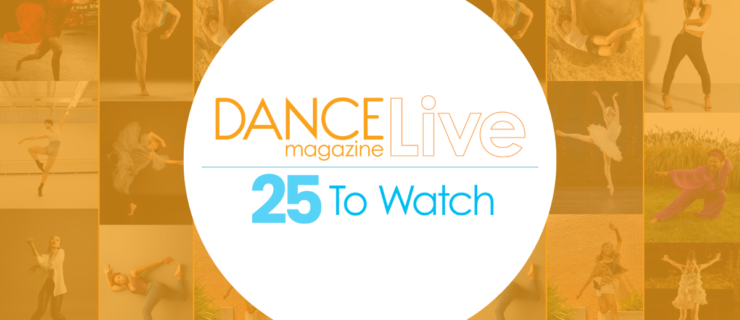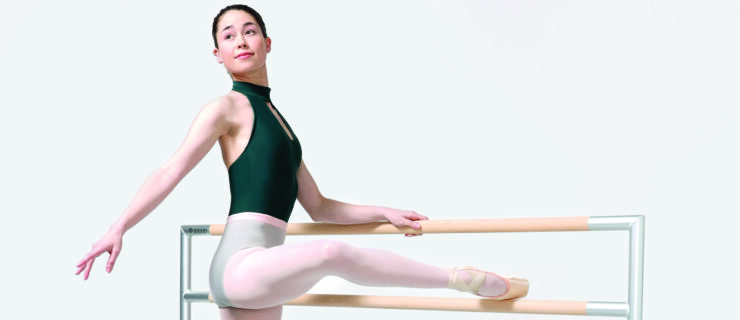Audition Troubleshooting
(Photo by Lucas Chilczuk)
At this time of year, summer program auditions can feel all-consuming. There’s tons of pressure to get into the intensive of your dreams—and one of the most nerve-racking things about the audition process is that no matter how well you prepare, it’s always unpredictable. The class could be packed so full you can hardly move. It could be led by a teacher you can barely understand. You could even be working through a last-minute injury.
What’s the secret to handling scary audition what-ifs? It lies in knowing what you can and can’t control, and in adapting quickly to tricky situations. “You can’t be a machine that does every audition the same way,” says Cedar Lake Contemporary Ballet artistic director Alexandra Damiani. “You have to be sensitive to each environment.” Here’s how to deal when that environment is less than perfect.
What if the room is too crowded?
Big opportunities draw lots of dancers, which frequently means the audition studio is super-full. “I’ve been there—I know it’s challenging to work in a really crowded room,” Damiani says. “But as a director, I can learn a lot about you as a dancer from watching how you deal with that.” Getting visibly frustrated—huffing and puffing—will only show the instructor that you’re easily frazzled. Do your best with the space you have, and be sure to treat the other dancers with respect. If you bump into someone, smile and apologize. Better yet, incorporate the mishap into your movement if the circumstances allow for it—especially during the freestyle/improv portion of the audition. Think of mistakes as opportunities for creativity.
Don’t let the confines of the space turn you into a shrinking violet, either. Houston Ballet II member Tyler Donatelli says that while it’s important to be courteous to the other dancers, you should take any opportunity you can to move forward and be seen.
What if I can’t understand the teacher?
The instructor leading the audition may decide to give barre combinations all the way across the studio from you, or she might speak in an accent you’re not familiar with. Don’t be shy if you need more information. “You shouldn’t be afraid to ask a question,” says Juilliard Dance Division artistic director Lawrence Rhodes. “It shows you want to get it right.” Just be careful not to go overboard, and be careful about your timing. Damiani says that questions are always welcome when the class is learning an exercise, but once it’s time to perform the combination, you’re too late.
What if I show up wearing the wrong thing?
Figuring out an audition outfit is a tricky balance: You want to appear professional without being forgettable. Always look at the school’s website to see if it offers guidelines. (At Juilliard, for example, there’s an audition dress code.) If no instructions are given, Damiani suggests bringing an assortment of options to the audition. That way, you can determine which will work best after entering the space and seeing the other dancers. When in doubt, it’s usually better to wear more conservative pieces in vibrant colors, so that you catch the auditioners’ eyes without going over the top.
If you do show up in a less-than-ideal ensemble, use your dancing to send the right message instead. “So you misjudged and wore something too flashy? That’s not the end of the world,” Damiani says. “What you can change is the way you approach each combination. In your energy, you can say, ‘I’m serious. I’m here, and I’m no joke.’ ”
Smiling helps Saori Yamashita relax at auditions (Cheryl Mann, courtesy The Joffrey Ballet)
What if I have to dance in a style I’m not familiar with?
Sometimes, your audition might take you out of your comfort zone. You could be asked to improvise, or to use Balanchine technique instead of the Vaganova style you’ve trained in. Keep in mind that summer intensives are a great way to expand the horizons of your training, and the people at the front of the room know that. What they want to see is potential, not that you’ve mastered every style out there. “Give yourself a pep talk: I’m going to learn something new,” Damiani says. Rather than dancing tentatively, go all out—even if you’re not sure you’re doing everything perfectly. “Show them how open-minded, eager and hungry you are,” Damiani says.
What if I have an injury?
How you should handle an injury during audition season depends on what kind of injury you have. Two years ago, Joffrey Academy Trainee Saori Yamashita hurt her ankle before summer intensive auditions began. She wanted to push through her audition lineup, but eventually the severity of the injury forced her to skip several tryouts. Though she was disappointed at the time, the decision kept the problem from becoming more serious and really cutting into her training time later on. In short: Don’t ever ignore intense pain for the sake of an audition.
If your injury is less severe, attending auditions may still be worthwhile, but it’s important to tell someone. Rhodes recommends approaching a staff member at registration, before class begins, to make them aware of your injury. “That way, if we see what we think is real promise, we’ll come to terms with the fact that you’re not jumping today,” he says. “It’s better to let people know than to suffer in silence.” Sometimes you can even follow up an in-person audition with a video. If you’re unsure, ask your regular dance teacher for advice. She can help you put auditions in perspective, and figure out if dancing on your injury is worth the risk.
What if I’m really nervous?
It’s completely natural to feel a little shaky walking into an audition. But make sure you harness that energy instead of letting it derail you. If your nerves are really overwhelming, Damiani and Rhodes recommend taking a few minutes to meditate and visualize your dancing before you enter the room. Acknowledge the what-ifs worrying you, and address each one with a solution that’s within your control. Don’t let the dancers around you add to your nervousness, either. You’re there to impress the teachers, not the other girls at the barre. “I like to isolate myself by putting my headphones in,” Donatelli says. “That way I can make sure I’m ready physically and mentally, without getting distracted.”
For Yamashita, the solution to nerves is simple: “I always smile when I’m nervous, because it helps me relax.” She’s on to something: Studies have shown that even if you’re not feeling especially happy, the act of smiling can improve your mood. And your bright face will make you stand out in a room full of anxious dancers.



